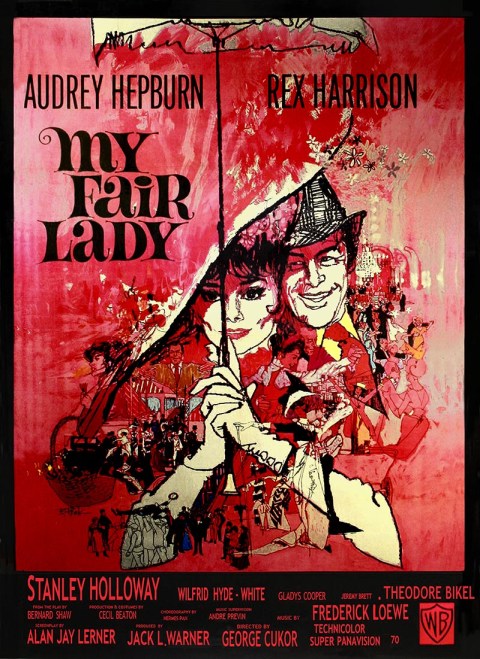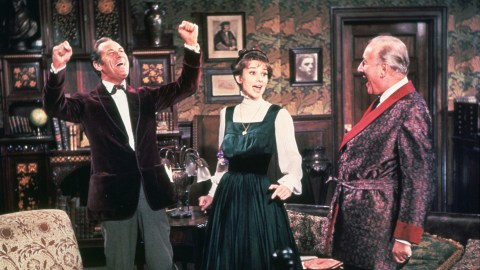17. 4. – 19. 4. 2026
My Fair Lady

 Original title: My Fair Lady
Original title: My Fair LadyDirector: George Cukor
Production: 1964, USA
Length: 170 min. + intermission
Screened:
KRRR! 2024: 70mm 2.2:1, Colours faded, Digital Sync, Spoken language: English, Subtitles: CzechAnnotation for KRRR! 2024
The musical has always been the flagship of Hollywood, but by the 1950s and 1960s, it wasn't just MGM that had the best musical department, other Hollywood studios also had big hits. For Warner Bros studio, such a hit will always be My Fair Lady, which was a film adaptation of the equally famous Broadway stage musical of the same name, where Julie Andrews shone from 1956 onwards.
Andrews was expected to be cast in the film version, but the film's producers didn't think she was famous enough yet. In fact, films such as Mary Poppins (1964) and The Sound of Music (1965), for which she became world famous, were yet to be released or were in production. The role of Lisa Doolittle was given to Audrey Hepburn, who had already made several successful films, such as Holiday in Rome (1953) and Breakfast at Tiffany's (1961).
And if this decision itself was already a source of resentment, even more controversial was the discovery that most of the songs of the character played by Audrey Hepburn in the film were sung by Marni Nixon, whose voice also came from many other famous mouths, from Marilyn Monroe to Natalie Wood.
Still, My Fair Lady is a beloved film for many viewers, and it's hard to find any major fault with it. Everything is breathtaking. The spectacular sets and cinematography, the elaborate costumes or masks, as well as the movement of the actors, the iconic songs, the self-centred Professor Higgins, the innocent Lisa or the platonic romanticism of the film. In fact, we don't see a single kiss in its entire duration - neither between Higgins and Lisa, nor between Lisa and Freddy, who falls madly in love with her. Is it possible to find anything new, let alone criticizable, about this beloved film today?
Well, the story itself deserves an eyebrow-raising today, especially the ending. Most of the time, Professor Higgins treats Lisa like a groban of the highest order, even though he gives the impression of a gentleman. He insults her and takes advantage of her poverty. He knows that people like her are used to enduring the worst in order to have a better life. If Higgins' behaviour had not been corrected by his friend Pickering and his maid Mrs Pearce, who try to treat Lisa as a human being, God knows how Lisa would have ended up. Fortunately, though, she is not stupid and thinks about her situation, as well as finding her place in the world she has been thrust into and figuring out what she is best at.
The screenwriter of the film and the stage musical A. J. Lerner, as well as the author of the very original draft, G. B. Shaw, in doing so, leaves Lisa plenty of room for not only her, but even our, decisions about what happens to her next. In this, My Fair Lady remains exceptional and different from other melodramas or more generally romantic films of its time. It is still relevant.